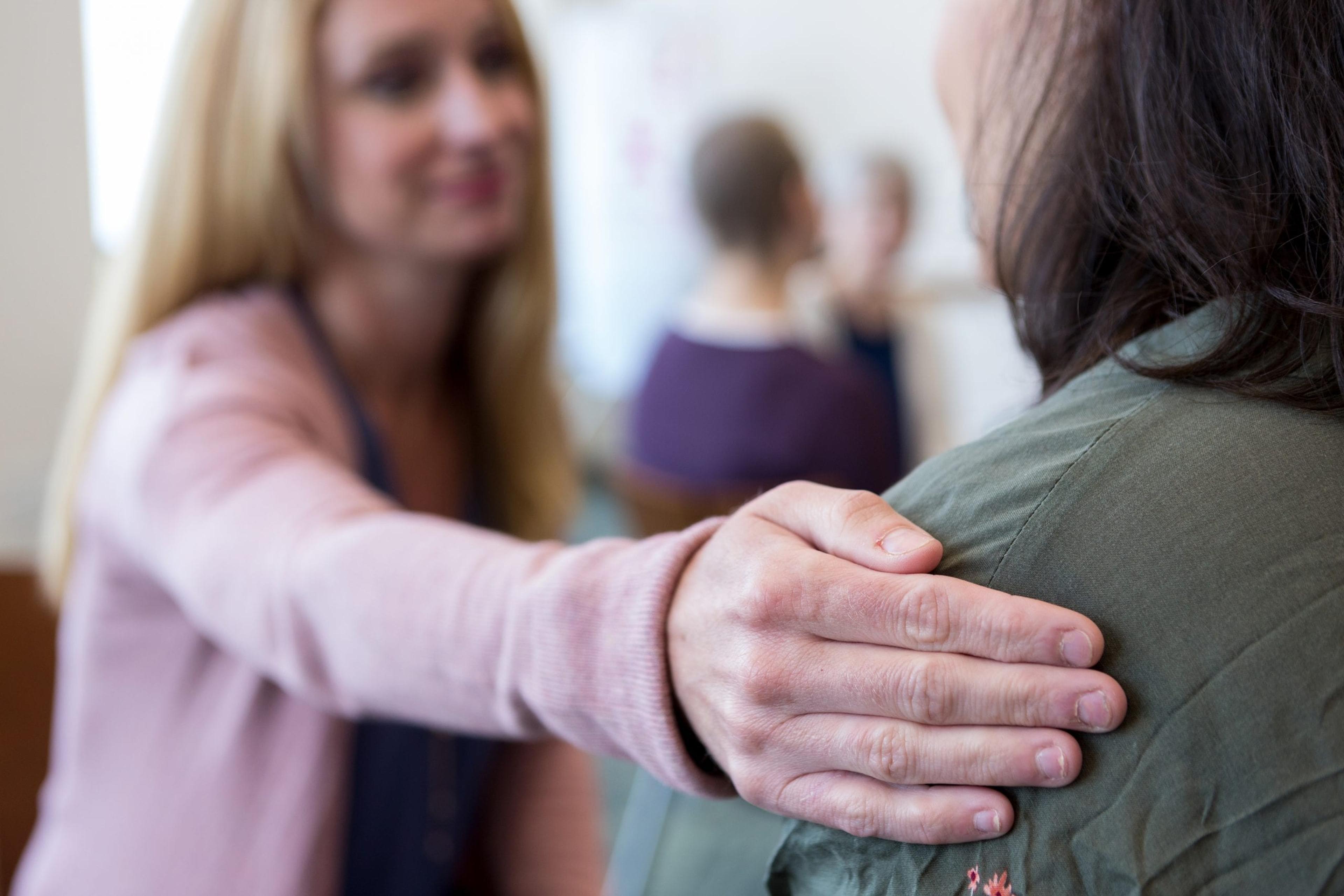
Losing a friend or family member is never easy, but for people who’ve lost loved ones to suicide, the grieving process can be particularly intense. “This kind of grief is complicated and unique, with survivors struggling to understand why,” explained Megan Scott, director, Marketing and Development at Gryphon Place, a Kalamazoo-based organization dedicated to helping people navigate crisis situations. “Common feelings include anger, shame, confusion and feeling especially isolated due to stigma. Individuals who lose a loved one to suicide often feel a sense of guilt if they feel their loved one’s death could have been prevented.” Whether you’ve lost a loved one to suicide or are trying to help someone else who has experienced loss due to suicide, there are many resources available, Scott said.
Support groups can help survivors feel less alone
Attending a support group for survivors of suicide can be an important way to move forward. Some find that sharing with other survivors who uniquely understand what they’re going through is especially cathartic. “Many times, survivors feel that attending a support group with other survivors, where they can share their stories and feelings without pressure or fear of judgment, can be the most helpful in the healing process,” Scott explained. Survivors of suicide can look at survivorsofsuicide.com to find a directory of support groups. If you’re located in the Kalamazoo area, Gryphon Place offers a Survivors of Suicide Loss Support Group that meets twice a month. The support group is currently meeting virtually until it is safe to meet in person again. To get connected to that support group, you can call Gryphon Place by dialing 2-1-1. If you’d prefer to seek support one-on-one, speaking with a licensed mental health professional can be a first step toward healing. If you are employed or have insurance, you can call the behavioral health phone number on the back of your health insurance card or see if your employer offers an Employee Assistance Program (EAP). You can also call a local counseling office and schedule an urgent appointment. If you need help locating mental health support, the operators answering 2-1-1 calls can point you toward local resources.
How to support others who have lost loved ones to suicide
Due to the stigma surrounding suicide, family and friends often avoid talking about the suicide death with the survivor, instead relying on the survivor’s initiative to talk about their loved one. “Feelings such as embarrassment may prevent a survivor from reaching out for help,” Scott said. “It is important for survivors to have ongoing support from family and friends during the grieving process.” So, what’s helpful and what can be hurtful? Simply showing up and listening without judgment is one of the best things you can do for a survivor. “Understand that the grieving process is different and intense for a survivor. Realize that it is not about what you say, but instead just being there and providing support,” Scott said. Avoid using simple explanations or clichés, such as “everything happens for a reason” or “time will heal all wounds.” It can also be hurtful to attempt to describe the state of mind the loved one was experiencing before they died by suicide. For example, avoid saying they were “out of their mind” or offering similar explanations. "In the end, survivors need to search for meaning and come to their own understanding of the death,” Scott explained. The Suicide Prevention Lifeline has a comprehensive section on their website aimed at survivors that could be helpful for people navigating an unexpected loss. If you’re struggling with thoughts of suicide, are in need of emotional support, or have concerns about a loved one, call the National Suicide Prevention Lifeline, available 24/7 at 1-800-273-8255. Or, call Gryphon Place directly at (269) 381 – HELP (4357). Blue Cross Blue Shield of Michigan is proud to support Gryphon Place’s 7th annual Suicide Prevention Walk, taking place virtually on Saturday, Sept. 26. Related:
- Words Matter in Stopping Suicide Stigma
- Understanding the Link Between Suicide and Opioid Use
- Combating Suicide and Addiction
Photo credit: SDI Productions





